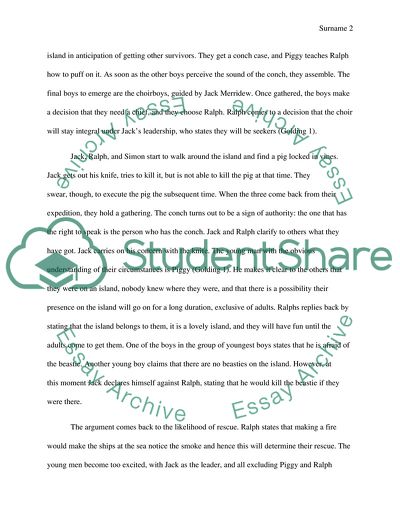Cite this document
(“Analysis of Lord of the Flies by Willliam Golding Essay - 1”, n.d.)
Analysis of Lord of the Flies by Willliam Golding Essay - 1. Retrieved from https://studentshare.org/literature/1583233-analysis-of-lord-of-the-flies-by-willliam-golding
Analysis of Lord of the Flies by Willliam Golding Essay - 1. Retrieved from https://studentshare.org/literature/1583233-analysis-of-lord-of-the-flies-by-willliam-golding
(Analysis of Lord of the Flies by Willliam Golding Essay - 1)
Analysis of Lord of the Flies by Willliam Golding Essay - 1. https://studentshare.org/literature/1583233-analysis-of-lord-of-the-flies-by-willliam-golding.
Analysis of Lord of the Flies by Willliam Golding Essay - 1. https://studentshare.org/literature/1583233-analysis-of-lord-of-the-flies-by-willliam-golding.
“Analysis of Lord of the Flies by Willliam Golding Essay - 1”, n.d. https://studentshare.org/literature/1583233-analysis-of-lord-of-the-flies-by-willliam-golding.


